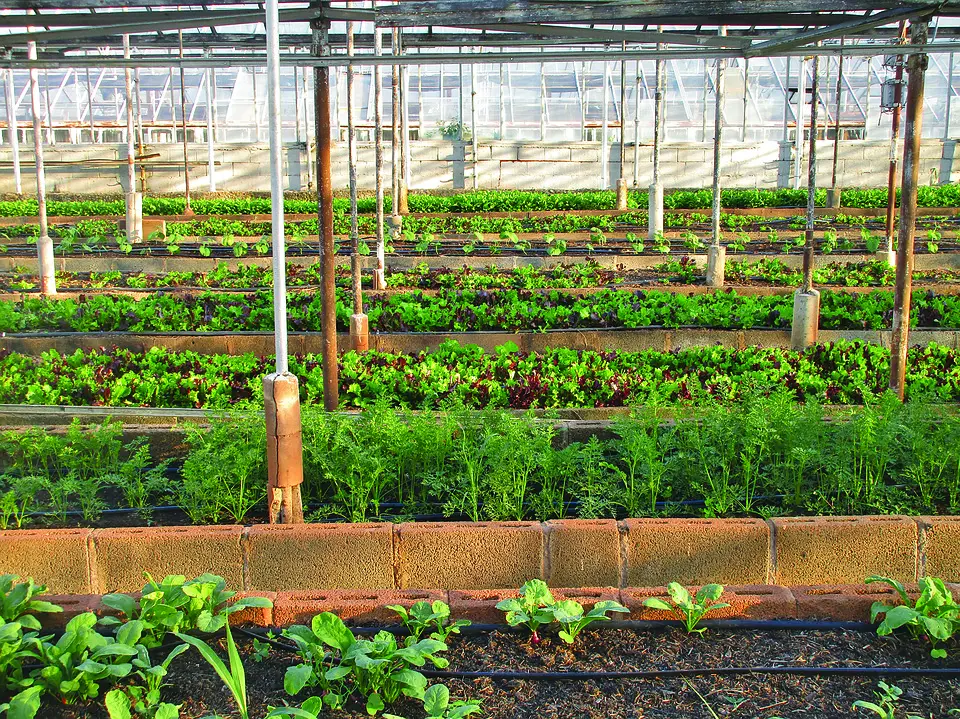Introduction
Sustainable agriculture has become an increasingly essential topic as the world faces environmental challenges and the need for food security.
One method that has gained popularity in recent years is greenhouse gardening.
Greenhouses provide a controlled environment where plants can thrive regardless of weather conditions, allowing for year-round cultivation.
This article will explore the rise of sustainable agriculture and discuss the significant role that greenhouse gardening plays in it.
The Benefits of Greenhouse Gardening
Greenhouse gardening offers several benefits that contribute to sustainable agriculture.
Firstly, it extends the growing season, enabling farmers to produce crops outside their typical planting window.
By having longer cultivation periods, more food can be grown, reducing the need for importing produce from faraway locations, which contributes to greenhouse gas emissions due to transportation.
Additionally, greenhouse gardening provides protection against pests and diseases, reducing the reliance on chemicals and promoting natural pest control methods.
It also minimizes water consumption by utilizing efficient irrigation systems and capturing and reusing rainwater, thereby conserving this precious resource.
Energy Efficiency in Greenhouses
While greenhouses require energy for temperature regulation, modern advancements in greenhouse technology have made them increasingly energy efficient.
Insulation materials, such as double-layered polyethylene or glass, help retain heat during colder seasons, reducing the need for additional heating.
Ventilation systems powered by renewable energy sources, such as solar panels, can regulate temperature and humidity more sustainably.
The use of energy-efficient LED lights further aids plant growth, consuming less electricity compared to traditional lighting systems.
As the demand for sustainable energy solutions increases, so does the potential for greenhouses to become even more eco-friendly.
Water Conservation in Greenhouse Gardening
Water scarcity is a growing concern globally.
Greenhouse gardening presents an opportunity for water conservation through various methods.
Drip irrigation systems deliver water directly to the roots, minimizing wastage through evaporation or runoff.
Additionally, the collection and storage of rainwater provide an alternative water source and reduce reliance on municipal supplies.
The careful monitoring of soil moisture levels within greenhouses ensures efficient water usage, ultimately minimizing water waste.
The Social and Economic Impact
Apart from environmental benefits, greenhouse gardening has a significant impact on both social and economic aspects.
By extending the growing season and yielding higher crop outputs, it creates employment opportunities and stimulates local economies.
Access to fresh, locally grown produce increases food security and reduces dependency on imported goods.
Furthermore, as consumers become more conscious of the environmental impact of their food choices, the demand for sustainably grown produce continues to rise.
FAQs
Q: Is groundwater depletion a concern in greenhouse gardening?
A: While the initial setup cost of a greenhouse can be an investment, the long-term benefits outweigh the expenses.
Energy-efficient practices and reduced water consumption lead to cost savings over time.
Additionally, the extended growing season and increased crop yields can generate higher profits for growers.
Q: Can any plant be grown in a greenhouse?
A: Greenhouses provide an ideal environment for a wide range of plants.
However, it is essential to consider temperature, humidity, and light requirements specific to each plant species.
With the appropriate adjustments, most plants can thrive in a greenhouse setting.
Q: Are pesticides necessary in greenhouse gardening?
A: The controlled environment of a greenhouse reduces the need for pesticides, as it naturally limits the entry of pests and diseases.
Implementing preventive techniques like regular monitoring, proper sanitation, and biological pest controls can further eliminate the need for chemical pesticides.
Q: Can greenhouse gardening be practiced on a small scale?
A: Absolutely! Greenhouse gardening can be adapted to any scale, from backyard setups to commercial operations.
Compact and mini-greenhouses are available for small-scale gardening, making it accessible to individuals with limited space.
Q: What vegetables are commonly grown in greenhouses?
A: Popular vegetables grown in greenhouses include tomatoes, cucumbers, peppers, lettuce, and herbs such as basil and parsley.
However, with proper care and attention, a wide range of vegetables can be grown in a greenhouse environment.




